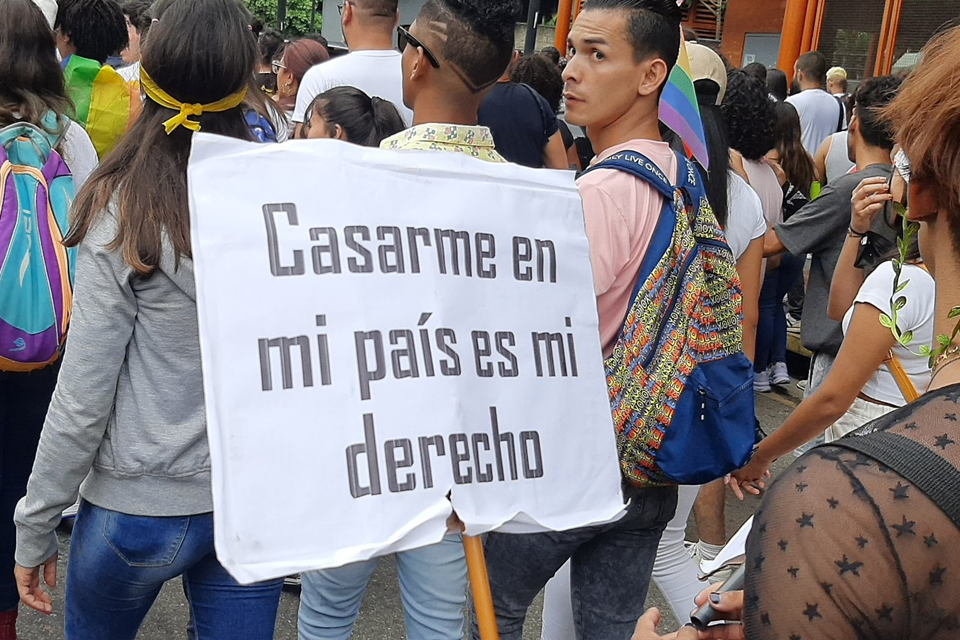The more than 30 years of history of Bersuit Vergarabat will be revisited through their songs in a cycle of concerts that the band will launch on July 9 and will extend to the days 16 and 30, in La Trastiendalocated in the Buenos Aires neighborhood of San Telmo, where on each of the dates a different group of records will be addressed.
In this way, in the first of the sessions “La argentinidad al palo” (2004), “Y punto” (1992) and “La revuelta” (2012) will be reviewed; in the second it will be the turn of “Asquerosa alegría” (1993), “Licentiousness” (1998), “Testosterone” (2005) and “The pink cloud” (2016); and finally, the productions “Hijos del culo” (2000), “Don Leopardo” (1996) and “El baile interior” (2014) will be lucky at the closing of the cycle.
“We try to bring old records and mix them with the new ones so that it is a back and forth. Let history vary, let it be zigzagging in that sense. That was the criterion for grouping the discs that way. And then it was to look for the songs that we know the public will like, songs that will transport people back in time”, The singer Germán “Cóndor” Sbarbati told Télam.
Of course, the band has already lived this experience that it seeks to share with its followers in its own flesh in this process of forming the respective repertoires for each of the nights, according to what the vocalist commented.
“We are happy because delving into those songs also transports us to images, to places, to tours, to anecdotes. So it’s very nice to be able to get into history and records, and to be able to perform those songs again, ”he celebrated.
Of course this exercise of flying over the history of Bersuit in a permanent back and forth also involves immersing oneself in thousands of events that account for an intense journey in which incidents of all kinds abounded.
“We are happy because delving into those songs also transports us to images, to places, to tours, to anecdotes. So it’s really nice to be able to get into the story and into the records, and to be able to perform those songs again.”
Bersuit Vergarabat, or La Bersuit as it is also called, knew of popularity peaks with a show at River in 2007 as a great milestone, of the traumatic departure of its iconic singer Gustavo Cordera, of criticism by fundamentalist rockers for including rhythms such as cumbia – and wearing pajamas as costumes-, and questions about the themes of many of his songs.
The group that in the ’90s shouted loudly against the neoliberal system, sang to the marginalized and tried to unite popular styles, but also appealed to humor and language without subtlety in its most festive compositions, changed some of its members and reformulated over time; however, it can proudly boast of its future, as the Condor Sbarbati demonstrated in dialogue with this agency.
Télam: How did you find this kind of time travel to return to some songs from other times?
Condor Sbarbati: I was talking about reinterpreting songs because Gustavo sang many of them and he has an imprint, a way of saying things and singing them. We know the songs, the stories and how to say them too. They are songs that tell stories or moments that one did not live there, but knows; so as a singer, you can go back to those songs. We are many singing in the group, there are many colors and the songs take on a different meaning, but at the same time they are the same songs. Not that you are going to find something very different.
T: However, Bersuit has changed its profile a lot since Gustavo Cordera left. In some ways, it’s like a different band.
CS: I don’t see it that way. We understood over time that what is important, beyond the performer, are the songs. You are going to see a Bersuit show today and the one in front of you is the same song, nothing is missing. Obviously, when a voice leaves a band, the timbres change, but that’s more of a technical issue. Of course it was hard for us, because Gustavo has a lot of personality on stage, but today you go to a Bersuit show and the songs sound the same as they did 34 years ago.
T: I was also referring to the fact that the group put aside that rage and irony that characterized it in the ’90s and acquired a more luminous character from its lyrics; in addition to adding folk rhythms, for example.
CS: Yes, but it also has to do with growth in terms of the band and with maturity in terms of us. We went from being crazy in pajamas traveling everywhere to being parents. There is a certain change in people, beyond continuing to plant ourselves in terms of the social in our songs. Obviously since we joined the group with Dani (Suárez, in 1997) there has been a change towards the folkloric in the vocal harmonies, because it is a color that we both put on the band. But from “Licentiousness” to here, Bersuit is Bersuit.
T: In the ’90s, at the height of the bailantas, Bersuit tried to approach that world by adding cumbia to its rhythms. How do you see today the possibility of venturing into the new fashionable urban rhythms?
CS: For us, making cumbia was counterproductive in the ’90s, because music was very sectarian at that time. They cataloged us as a non-rock band for doing cumbia, but we always maintained that music goes beyond the genre and that also marked us. Later the paradigm changed and today the new generations make rap, trap and urban music. It’s wonderful that music is being recycled. Each artist has his moment and his space. We are preparing a new album and in some songs we are incorporating a little bit of rap or trap, but we don’t fully approach it that way because it’s a bit far for us. But we do like to put some new colors into the songs.
T: According to many things that we talk about here, do you consider yourself “survivors”?
CS: Yes, we consider that. We are a popular band that parents come to see with their children. They are songs that musicalized the lives of many. We are a group that, despite the twists and turns, is still alive and eager to get on stage. For us, the important thing is the songs, the story and wearing our pajamas as a flag, beyond everything. We are proud to wear our pajamas and our songs around the world.
















